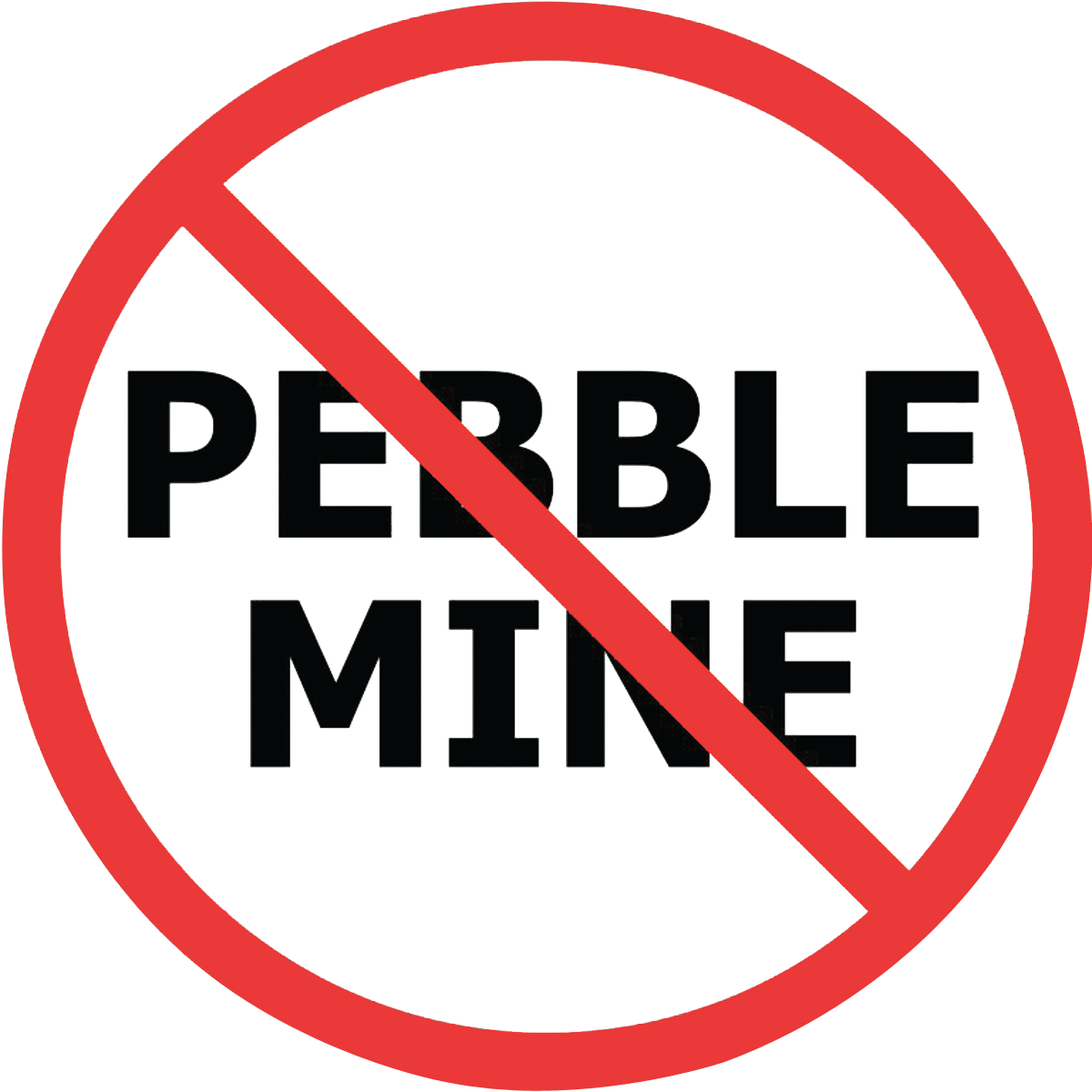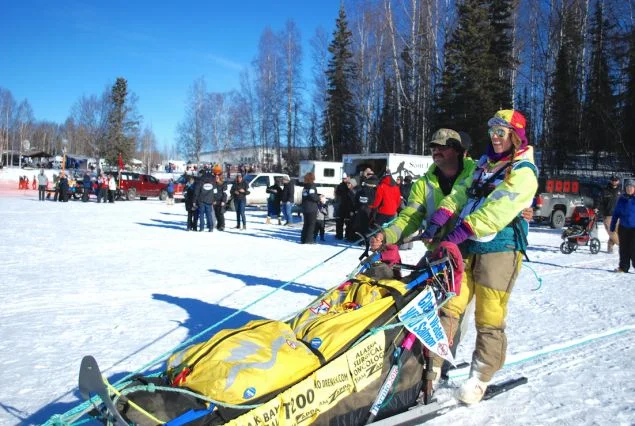Zappa mushes with a mantra to protect the wild salmon of Bristol Bay and beyond
Posted 03/13/2016 in the Cordova Times
Photo and story by - Margaret Bauman
In summer months, Monica Zappa is hard at work with fishing partner Tim Osmar, working his set net site at Kasilof on the Kenai Peninsula for sockeye salmon.
In winter months, the couple, who live off the grid in the Peninsula's Caribou Hills, are mushing dogs.
Since 2012 they have been mushing for a cause they care deeply about, protecting the salmon and salmon habitat of Bristol Bay from the dangers of large scale mines.
When Zappa set out on her third Iditarod Trail Sled Dog Race at Willow on March 6, a banner proclaiming "clean water, wild salmon" was affixed to her sled.
"Mushing to save Bristol Bay" is a mantra that came easy to Zappa, who in fact says she wants to generalize her whole statement on clean water and wild salmon to cover more of the state. "I don't think it's just Bristol Bay we need to protect," Zappa said in an interview days before the Iditarod began.
"I think we need to protect all the salmon in Alaska. I think it is our most valuable resource in the state. The food source is amazing. It's locally sourced. It comes back every year, and I think everybody should be totally into this protection of a natural resource and habitat protection for salmon."
Zappa, who earned a bachelor's degree in meteorology and a master's in geography from the University of Oklahoma, was working on a doctorate in Norman, Oklahoma, when being stuck behind a task starting taking its toll on her.
"I knew I needed to go somewhere else and get away, and I had met a friend in Oklahoma who had been fishing in Alaska and had wonderful stories to share, and really inspired me to go check it out." Her plan was to spend a year fishing and mushing in Alaska, then join the Peace Corps.
The plan ran amuck when, while sorting fish delivered to the dock at Kasilof, she met Iditarod veteran and Yukon Quest champion Tim Osmar.
That was in 2010. Now the couple fish and mush together, and promote the protection of salmon and salmon habitat.
"He likes to say 'I've never worked a day in my life and never had a day off '," says Zappa. "He's always been able to work for himself through fishing and mushing. It's a great lifestyle, to be able to work for yourself and be outside very day, and doing what you love and being physical and active.
"I don't think there is much else that can provide you with the kind of a lifestyle, so really, for those reasons, it is perfect. But it is becoming more and more difficult to make a living, especially with the fishing, and now the mushing is all sponsorship." The couple's message about protecting wild salmon has helped Zappa gain a lot of support though, she said.
Zappa and Osmar rely heavily on salmon as a protein source for themselves and their some four- dozen huskies. They eat a lot of salmon, including salmon they smoke themselves.
And they also feed their dogs about five tons of salmon a year. In summer months the cannery they deliver to gives them salmon scraps that they cook up with rice for their dogs, and in winter months that processor also gives them a lot of pink and chum salmon that didn't go to market. It's a huge percentage of the dogs' diet, and the actual really they can afford to feed all those dogs, she said.
Some years the couple starts fishing for herring in May, then switches to the salmon runs in mid-June. Low prices at the dock and restricted run times, owing to the low runs of king salmon, have put a damper on income, but their love of the life style keeps them on track.
Last summer, in addition to their Kasilof site, they leased a set net site at Egegik.
While the run was late and the prices for salmon were low, Osmar said he liked fishing at Egegik "because the biggest problem was whether a seal was going to eat your fish or a brown bear was going to eat your fish, versus whether you were going to get run over by a motor home (in Kasilof)," he said. "It was pretty heat to be there. There's a chance we might go back," he said.
Osmar, a third generation fisherman, grew up in a fishing family. His dad, Iditarod veteran Dean Osmar, still works a set net site at Kasilof adjacent to his son's site,
"part of the family farm, so to speak," said the younger Osmar.
Another advantage of their lifestyle is the health factor.
Commercial fishing is a very vigorous activity, one that keeps them active and ready for mushing once the fishing runs end.
"Fishing is strenuous exercise, but it does make you stronger," said Zapper. "I think it is great for upper body strength. Fishing you are using your arms so much, so I think it's a huge advantage for a musher to be working really hard all summer.
I would not have the upper body strength I have right now if it was not for fishing, pulling the lines, cranking the boat, hopefully pulling in hundreds of fish.
"There is an adrenalin rush to it, and you can do things you didn't realize you can do when you are out there fishing," she said.
"I even get seasick, but it's kind of, you have to be mentally tough. That way it helps you not just physically, but the mental toughness. There are times when the sea is really rough, and you think you might die, and then you survive it," she said. "Kind of like the Iditarod, when you get done with a really rough day in the water."
More about Zappa and Osmar is online at www.teamzappa.com
You can reach Margaret Bauman with comments and suggestions at mbauman@thecordovatimes.com
- See more here

